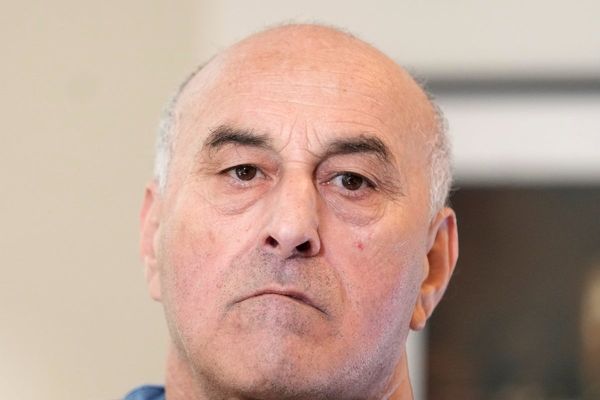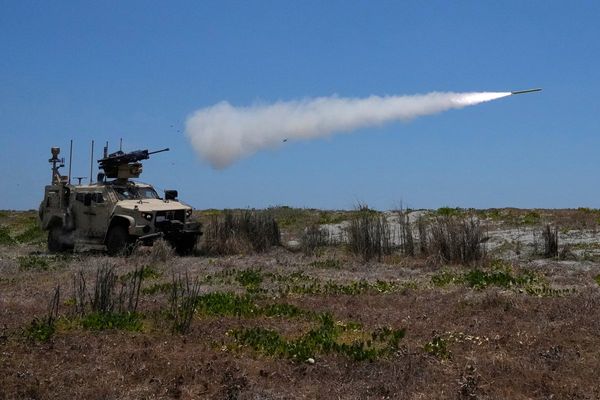Don’t start stitching that 51st star on the American flag just yet. Although 97 percent of voters in a Puerto Rico referendum on June 11 voted to start down the path of statehood, the chance of the island becoming a state is still, at best, a long shot.
Optimism was the word of the day among supporters of Puerto Rico statehood after this most recent victory, in this high-profile plebiscite. Among revelers waving American flags Sunday night, Puerto Rico Governor Ricardo Rossello—the leader of the pro-statehood New Progressive Party—echoed sentiments that the referendum’s message was clear. “The United States of America will have to obey the will of our people!,” he told the crowd.
On the mainland, the jubilation continued to reverberate. In a statement on Monday, Congressman José E. Serrano, who was born in Puerto Rico, celebrated the results of the plebiscite and claimed it as final proof that “Congress has a duty to listen and act upon these results so that Puerto Rico can be decolonized once and for all.”
That same day, White House Press Secretary Sean Spicer acknowledged the vote as a first step, saying “now that the people have spoken in Puerto Rico, this is something that Congress has to address.” To that end, Puerto Rico’s nonvoting Resident Commissioner in the House of Representatives, Jenniffer González, is drafting a statehood bill, and statehood advocates have been making the rounds on the Hill this week imploring Congress to move the matter forward.
All that enthusiasm is probably for naught. In reality, Sunday’s vote didn’t actually signal imminent statehood for Puerto Rico, in spite of the huge margin of victory and insistences from proponents that it would force the issue in Congress. In fact, some observers think the resounding victory of statehood might have actually hurt the long-term prospects of the legislative body finally allowing Puerto Rico fully into the Union. “To make a long story short, the prospects are between zero and negative-10 percent,” says Carlos Iván Gorrín Peralta, a professor at the InterAmerican University of Puerto Rico and a territorial-law scholar.
Although proponents of statehood sometimes cast the referendum as an automatic trigger for congressional review, the facts are that Congress is not bound by any aspect of the referendum vote on Sunday, and that Puerto Rico’s right to self-determination—while an important theoretical international legal concept and germane to its own territorial constitution—simply does not exist in federal legislative terms. Puerto Rico occupies an uncertain political status, one different from the 37 states added to the original 13 United States by Congress.
“All 37 [entry] processes have followed the scheme set out way back in 1787 in the Northwest Ordinance,” says Gorrín. “They were all annexed as part of the United States, designated from that moment to become states eventually.” The landmass of the continental United States, as well as the archipelago of Hawaii and the territory of Alaska, were all added to the U.S. with the legal understanding that they would be eligible to become states, which meant that Congress had clear pathways—including the use of referenda and self-determination—for declaring and granting statehood.
But Puerto Rico and the current U.S. territories have no such future statehood understanding. When Puerto Rico, Guam, and the Philippines were added to the country after the 1898 Treaty of Paris ended the Spanish-American War, their status was as colonial possessions, not as future states. In a series of racialist decisions in the Supreme Court known as the Insular Cases, the Court distinguished the Caribbean possessions as “unincorporated” territories that would first have to be incorporated in order to be eligible for statehood. And that itself would require an express determination from Congress.
If that determination were made at some point in the future, Congress might still abide by a slow process of statehood. “Traditionally, Congress has used three political criteria to decide to finally admit a territory,” says Gorrín. Those three criteria are the number of people in the territory who want statehood, the embrace of “the fundamental values of American democracy” among the territory’s population, and the territory’s solvency.
Although the 97 percent pro-statehood vote has been touted as near-unanimous support, turnout for the Puerto Rico referendum was abysmal. Fewer than a quarter of all voters voted at all, after a controversy regarding Department of Justice certification of the ballot questions led to charges of corruption and a mass boycott among opposition parties. As a result, though the margin of victory for statehood was the highest ever, the total number of people who indicated support for the move—somewhere around 500,000 voters—is much lower than previous referenda, where statehood hit a high of 800,000 supporters in 2012. Add Puerto Rico’s well-documented financial woes to this ambiguity about the popular support of statehood and the concerns about the validity of the ballot, and it’s clear that Sunday’s referendum actually displayed mixed results for the criteria used to initiate statehood.
Still, the final hurdle to Puerto Rico statehood is the fact that Congress simply doesn’t have to take up the matter at all, even with a referendum in hand. In today’s political climate, the Republican-dominated body won’t feel any pressure to add an island of millions of likely Democrats to the electorate.
Representative Luis V. Gutiérrez, an Illinois Democrat whose parents migrated to Chicago from Puerto Rico, outlined this dilemma in the language of realpolitik in a statement before the plebiscite. “The supporters of statehood are selling a fantasy that a Latino, Caribbean nation will be admitted as a state during the era of Donald Trump,” wrote Gutiérrez. “[Also] that states, many of which supported Trump, will accept a Spanish-speaking state that will receive just as many Senators and maybe even more House seats than they currently have.” At the end of the day, it’s the cynical calculations of politics in Washington that will determine Puerto Rico’s status. And it doesn’t appear Sunday’s plebiscite changed those much.







